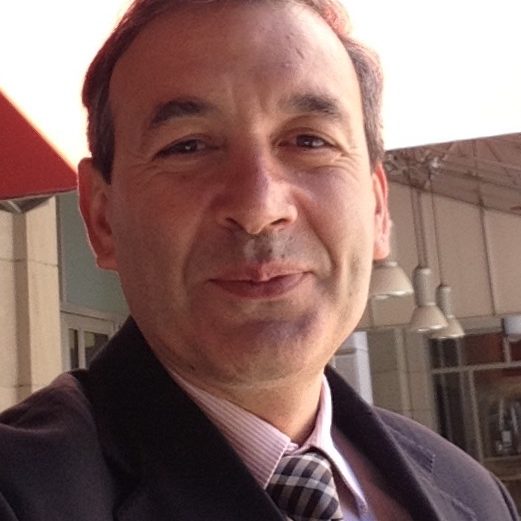
Executive Director
Elvis Kazazi is a co-founder of OTTOnomy. Born in Tirana, Kazazi relocated to Italy in 1991, where he trained in eastern and integrative medicine and physiotherapy. After working for 15 years in private practice in Italy as a physiotherapist specializing in holistic medicine, Kazazi returned to Albania, where, for the last 5 years, he has been quietly working behind the scenes to evolve the cultural heritage preservation initiative that became OTTOnomy. In Italy, he worked with the Rimini church residence program to provide assistance to people in need, and later with the Agimi foundation to resettle and provide assistance to Albanian refugees and asylum seekers following the fall of the communist regime. He continued work with Agimi in Albania (Vlore) and also with the Sisters of Mother Teresa to provide assistance to needy families in the period of the 1997 economic crisis. He was also part of the civil protection team in Italy, where he trained Italy’s best search and rescue dog and worked with the search and rescue teams, in local schools to provide pet therapy, and in the community to educate citizens about civil protections. Kazazi’s experience with relief organizations and his dedication to the healing arts represent core values of OTTOnomy, and his deep ties to key stakeholders in Albanian government, civil society, and business are a fundamental cornerstone launching OTTOnomy.

Academic Director and Human Rights Coordinator
Dr. Amy is co-founder of OTTOnomy and Professor of Cultural Studies and Writing at Georgia Southern University, where she also served as Director of the Women’s and Gender Studies Program from 2002 - 2009. Dr. Amy stepped down from directing Women’s and Gender Studies to begin her tenure as a Fulbright Scholar in Albania. She was a 2014 scholar in residence at the Woodrow Wilson International Center for Scholars in Washington, D.C., where she conducted secondary and policy research for her book-in- progress, Re-Membering in Transition: Trajectories of Violence, Structures of Denial, and the Struggle for Meaning in Post-Communist Albania. Particularly interested in the trans-generational transmission of trauma and the impact of an unresolved traumatic past on individual and cultural identity, she has published widely in the areas of violence, identity, and subjectivity, with a particular focus on pedagogical methods for addressing histories of violence as part of a classroom practice. As an activist scholar, she is spear-heading transnational educational exchanges between partners in the United States and Southeastern Europe, including study abroad and online collaborations. She is a Country of Origin Expert on Albania for the International Refugee Rights in Exile Programme, is on the editorial board of the Journal of Narrative Politics, and serves as an editorial reviewer for Studies of Transition States and Societies, The Freedom House Nations in Transit reports, Feminist Formations, and History of Communism in Europe and as a judge for the Department of State Fulbright and Humphrey Scholars programs.

Finance Officer
Ms. Thimm has lived and worked in Albania for 25 years. As Executive Director of Assist Impact, an Albanian NGO that she helped found, she has managed technical assistance, training and grants programs of approximately $1 million annually. Prior to Assist Impact,
she was Country Director of World Learning’s USAID-funded Participant Training Program/Albania office from 1996 -2011. As such, she oversaw the identification of training program objectives and outcomes for groups of senior-level professionals for short term, job-related training in the US or Europe, as well as the implementation of numerous in-country training, technical assistance and small grants programs. She has extensive experience in the field of development for results at both the grassroots and management level and is known for her integrity and non-political stance. Before World Learning, she was Country Director of the Peace Corps in both Haiti and Albania. She has lived and worked in Germany and Macedonia and traveled widely in Europe. She has a Master’s degree in Curriculum and Instruction and a Bachelor of Arts in economics both from the University of Wisconsin-Madison, and is fluent in Albanian, German, and good in Haitian Creole and French. In her free time she enjoys singing and playing the guitar.